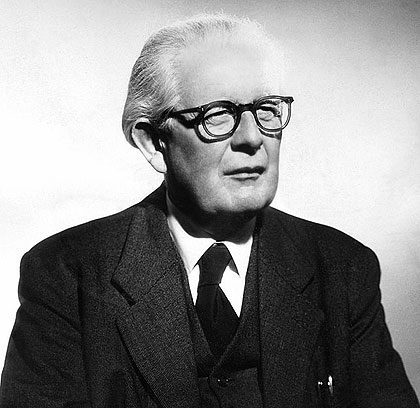Formal Operational Stage
Published on April 15th, 2020
Updated on January 2nd, 2024

Contents
The formal operational stage is the fourth and final stage of Jean Piaget’s theory of cognitive development. Jean Piaget was a psychologist. He is most well known for his work with understanding child development. His theory on cognitive development consists of four stages.

The four stages in Piaget’s theory of cognitive development are as follows:
Sponsored by

Choose a therapist to work with and start healing with 20% off from BetterHelp.
Click Here- Sensorimotor Stage (0 to 2 years old)
- Preoperational Stage (2 to 7 years old)
- Concrete Operational Stage (7 to 11 years old)
- Formal Operational Stage (11 years and older)
The formal operational stage of development begins around age 11. During this final stage, a child’s ability to use logical thought matures. A child is able to think abstractly and understand complex logic. They develop the ability to reason. The ability to reason comes with the ability to challenge facts and theories.
The formal operational stage begins at the close of childhood. It marks the beginning of adolescence. The formal operational stage does not mark the completion of cognitive development. The skills developed in the formal operational stage continue to be built throughout adulthood.
Piaget believed that not everyone reaches the formal operational stage. He believed that it is possible to not successfully overcome the challenges faced in formal operational stage.
According to Piaget, people can fail to achieve optimal cognitive development. It is possible for people to stop developing after the concrete operational stage. They may be able to develop some, but not all skills in the formal operational stage.
Key Components of the Formal Operational Stage
The formal operational stage begins around the same age as adolescence. In this stage, key skills are developed and refined. The adolescent is able to strengthen their logical reasoning skills.
Adolescents in the formal operational stage learn how to use their reasoning skills. They learn how to develop hypotheticals and idealize. They are also able to use their reasoning skills to reflect on their own behaviors.
Key skills that are developed in the formal operational stage are:
- Deductive reasoning
- Abstract thought
These skills were assessed by Piaget through a series of studies. Piaget performed observational studies in each of the four stages of development. These studies were used to assess mental processes in children.
The studies used to assess cognitive development in the formal operational stage included:
- The Third Eye Problem
- The Pendulum Task
Deductive Reasoning
In the concrete operational stage, a child learns how to use inductive reasoning. Inductive reasoning is the ability to draw conclusions based on information provided to the child.
With inductive reasoning, a child can make connections between pieces of information. The information comes from their environment. They can then generalize the connections to understand how the world works.
Example: Cindy understands that she may not run in the hallways at school. She also may not run in the hallways at home. Therefore, she is not allowed to run in the hallways at the hotel.
Once a child reaches the formal operational stage, they learn how to use deductive reasoning. Deductive reasoning is using information from an environment to form conclusions.
An example of how deductive reasoning is used is illustrated with “if, then” statements. Hypothetical thought is a trademark of the formal operational stage.
Example: “All arrows point north. That arrow is pointing right. Therefore, if I am heading north and want to continue to head north, I must turn right.”
In the formal operational stage, an adolescent can take life lessons and apply them to specific issues. They are able to draw conclusions from what they have learned about life. They can then apply those conclusions to present situations.
Example: “Riley is from Connecticut. All people from Connecticut are rich. Riley must be rich.”

Hypothetical Deductive Reasoning
Adolescents in the formal operational stage can use deductive reasoning to test hypotheses. These hypotheses are based on what the adolescent can expect to occur, according to logic.
They are able to use hypothetical-deductive reasoning as an aid in decision making. Hypothetical-deductive reasoning aids in drawing conclusions about possible outcomes for a situation.
The Pendulum Task
Hypothetical deductive reasoning is best illustrated by the Pendulum Task. The Pendulum Task was one of the studies Piaget used to assess thought processes in adolescence. In this study, adolescents were presented with different pendulums.
Each pendulum had different variables. These variables included:
- Different weights
- Different lengths
- Different strengths of force when pushed
Adolescents in this study were asked about their predictions for how the pendulum would swing. They were not analyzed based on the accuracy of their predictions. The adolescents were assessed based on their ability to use deductive reasoning. This assessment is similar to the assessment used in the Third Eye Problem, which is explained below.
The adolescent’s ability to use abstract thought was also observed. They were assessed based on their ability to understand different variables and how they could affect an outcome.
Abstract Thought
In the formal operational stage, an adolescent is able to use abstract thinking. Abstract thinking allows people to understand concepts without them being presented to them. As a result, the adolescent learns how to think in hypotheticals. They learn how to think about their feelings and reflect on their standards for behavior.
With abstract thinking, an adolescent is able to think about ideal situations. From there, they can create expectations. This helps them with planning ahead and envisioning different scenarios.
Adolescents in this stage develop moral standards and expectations. As a result, they may become critical of others and themselves. They may also use abstract thought to process what is expected of them. They can then decide whether to act on those expectations.
Third Eye Problem
The Third Eye problem was a study Piaget designed in 1970. It assessed thought processes in adolescents. Findings contributed significantly to Piaget’s development of the formal operational stage.
In the study, adolescents were asked if they could have a third eye, where would they put it and why? Their responses were analyzed based on their imagination and reasoning. The location was not important, but their explanation of why they chose the location is what mattered. They demonstrated hypothetical thought, imagination and abstract reasoning in their responses.
Sponsored by

Find an affordable therapist online with 20% off from BetterHelp.
Click Here






Leave A Reply